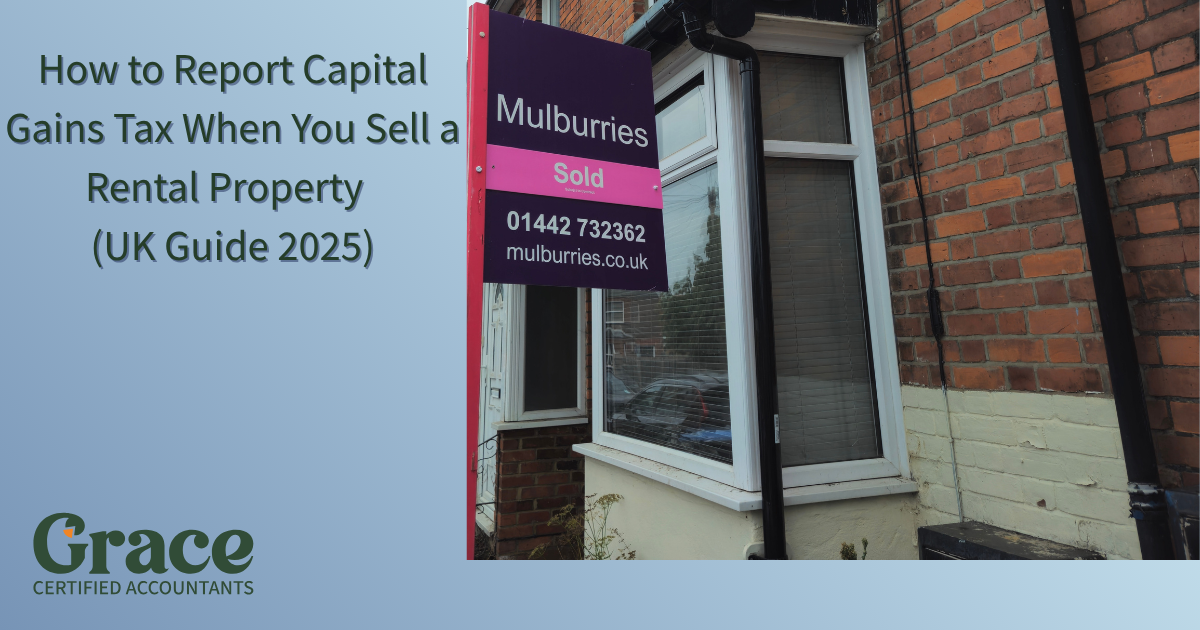Sold a rental property?
You can’t wait for your next tax return. Since April 2020, most UK property sales must be reported, and CGT paid, within 60 days of completion.
Here’s what you need to know.
Who Must Report the Sale?
You must report within 60 days if:
- You sold a UK residential property
- You made a taxable gain after allowances and reliefs
Exceptions:
You don’t need to report within 60 days if:
- You sold your main home, and
- It’s fully covered by Private Residence Relief
Want help reporting your CGT? This short video shows you exactly how to file and what HMRC expects.
What Information Do You Need?
Before starting your return, gather:
- Purchase date and price
- Sale date and price
- Legal and professional fees
- Costs of capital improvements
- Reliefs you’re claiming (e.g. PRR, Lettings Relief)
- Your annual CGT allowance
(£3,000 for 2024–25)
Find out which costs you can claim against CGT in our business expenses guide.
How to Report Online
- Set up a CGT on UK Property Account
- Sign in with your Government Gateway
- Start a new return
- Enter the sale and cost details
- Calculate the estimated tax
- Submit the return
- Double-check your entries
- Pay your CGT (within 60 days)
What If You Miss the Deadline?
- HMRC may issue late filing penalties
- Interest will apply to unpaid tax
- It’s better to submit an estimate on time and amend later
than miss the 60-day window entirely
Common Questions
What if I own the property jointly?
Each owner must report and pay separately.
Do I still include this in my tax return?
Yes. The 60-day report is in addition to Self Assessment.
Need Help?
Reporting a property sale can be confusing—especially if it’s your first one.
Grace Certified Accountants can help you:
- Calculate your gain accurately
- Claim all valid reliefs
- Avoid fines and interest
Related reading:
Selling up because of Section 24 changes? Here’s what you can still claim, and what’s changed with mortgage interest relief. Can Landlords Still Claim Mortgage Interest? Section 24 Explained
